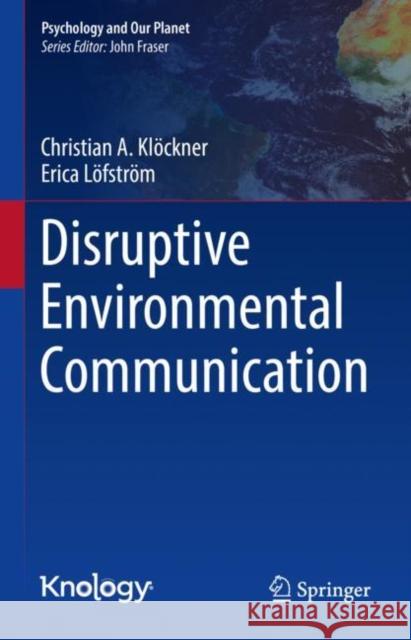Disruptive Environmental Communication » książka
Disruptive Environmental Communication
ISBN-13: 9783031171642 / Angielski / Twarda / 2022 / 158 str.
Disruptive Environmental Communication
ISBN-13: 9783031171642 / Angielski / Twarda / 2022 / 158 str.
(netto: 460,04 VAT: 5%)
Najniższa cena z 30 dni: 462,63
ok. 16-18 dni roboczych.
Darmowa dostawa!
This book proposes a radical change in communication strategies about environmental problems, advocating for more active and emotionally engaging methods that drive people to action. Based on new theoretical developments and research, the book provides a new framework for designing such communication strategies and suggests practical implementations of these ideas for practitioners, policy-makers, and scientists.Among the topics discussed:• The psychology of change and why disruptive communication is necessary• Virtual reality technologies used to communicate complex ideas• Reflections on the value of science fiction and climate fiction in addressing environmental issues• Analyzing the impact of youth climate activismDisruptive Environmental Communication provides an innovative new framework for designing effective communication strategies to address large-scale environmental problems, challenging the assumption that environmental problems can be communicated and handled through non-disruptive methods.
This book proposes a radical change in communication strategies about environmental problems, advocating for more active and emotionally engaging methods that drive people to action. Based on new theoretical developments and research, the book provides a new framework for designing such communication strategies and suggests practical implementations of these ideas for practitioners, policy-makers, and scientists.Among the topics discussed: • The psychology of change and why disruptive communication is necessary• Virtual reality technologies used to communicate complex ideas• Reflections on the value of science fiction and climate fiction in addressing environmental issues• Analyzing the impact of youth climate activismDisruptive Environmental Communication provides an innovative new framework for designing effective communication strategies to address large-scale environmental problems, challenging the assumption that environmental problems can be communicated and handled through non-disruptive methods.











